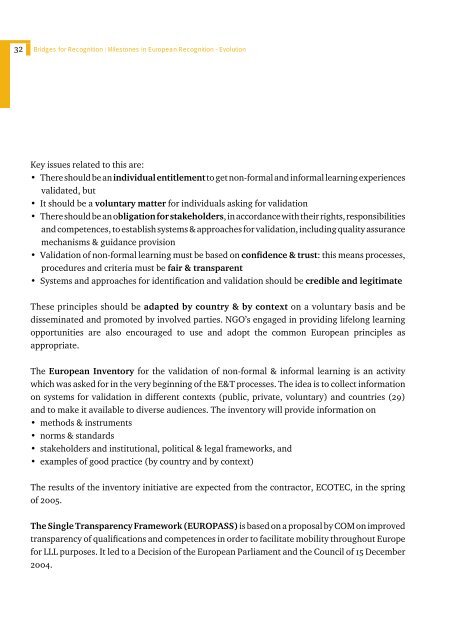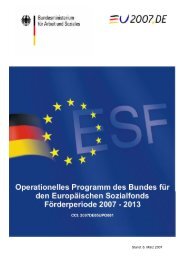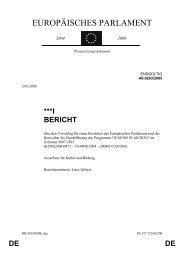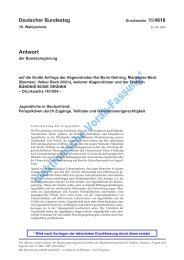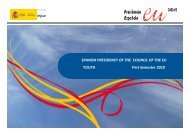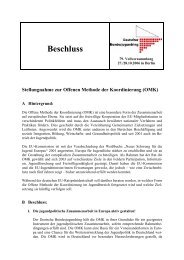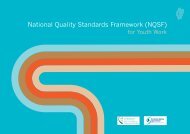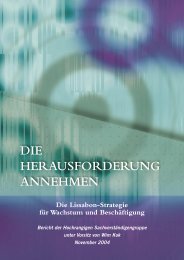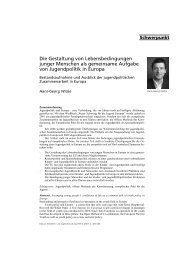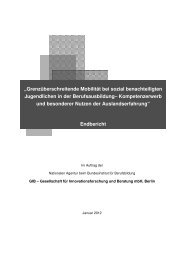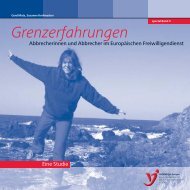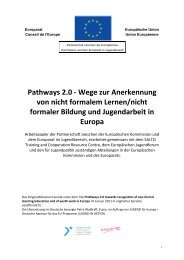Report - Salto
Report - Salto
Report - Salto
Create successful ePaper yourself
Turn your PDF publications into a flip-book with our unique Google optimized e-Paper software.
32<br />
Bridges for Recognition | Milestones in European Recognition - Evolution<br />
Key issues related to this are:<br />
• There should be an individual entitlement to get non-formal and informal learning experiences<br />
validated, but<br />
• It should be a voluntary matter for individuals asking for validation<br />
• There should be an obligation for stakeholders, in accordance with their rights, responsibilities<br />
and competences, to establish systems & approaches for validation, including quality assurance<br />
mechanisms & guidance provision<br />
• Validation of non-formal learning must be based on confidence & trust: this means processes,<br />
procedures and criteria must be fair & transparent<br />
• Systems and approaches for identification and validation should be credible and legitimate<br />
These principles should be adapted by country & by context on a voluntary basis and be<br />
disseminated and promoted by involved parties. NGO’s engaged in providing lifelong learning<br />
opportunities are also encouraged to use and adopt the common European principles as<br />
appropriate.<br />
The European Inventory for the validation of non-formal & informal learning is an activity<br />
which was asked for in the very beginning of the E&T processes. The idea is to collect information<br />
on systems for validation in different contexts (public, private, voluntary) and countries (29)<br />
and to make it available to diverse audiences. The inventory will provide information on<br />
• methods & instruments<br />
• norms & standards<br />
• stakeholders and institutional, political & legal frameworks, and<br />
• examples of good practice (by country and by context)<br />
The results of the inventory initiative are expected from the contractor, ECOTEC, in the spring<br />
of 2005.<br />
The Single Transparency Framework (EUROPASS) is based on a proposal by COM on improved<br />
transparency of qualifications and competences in order to facilitate mobility throughout Europe<br />
for LLL purposes. It led to a Decision of the European Parliament and the Council of 15 December<br />
2004.


